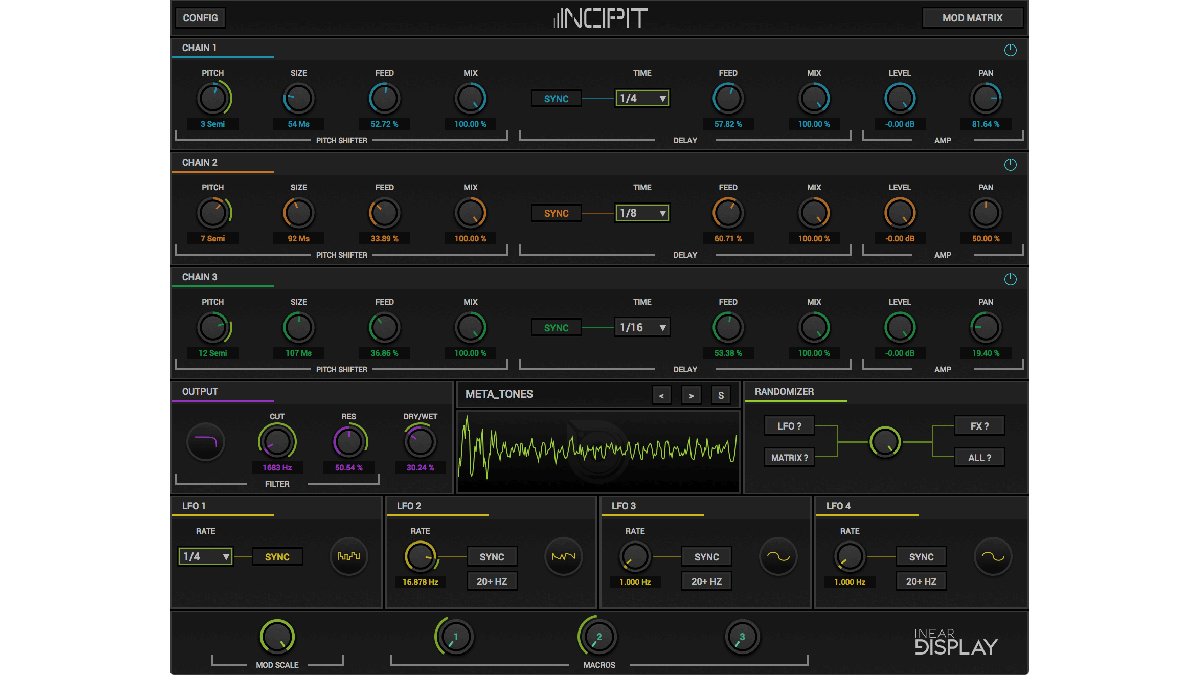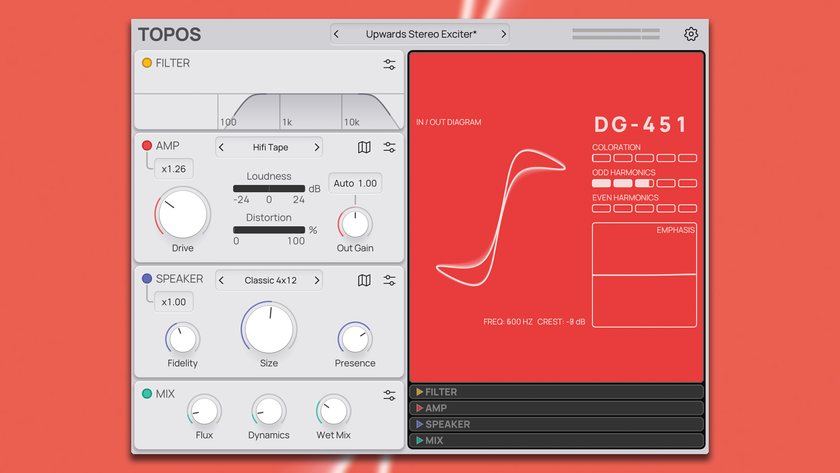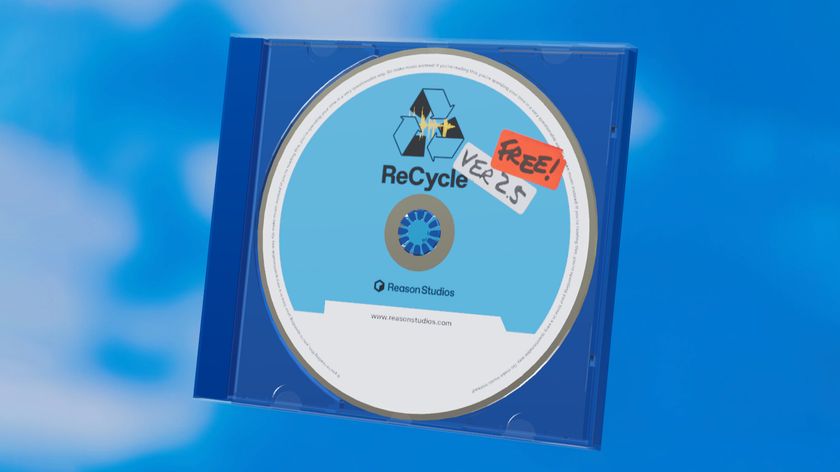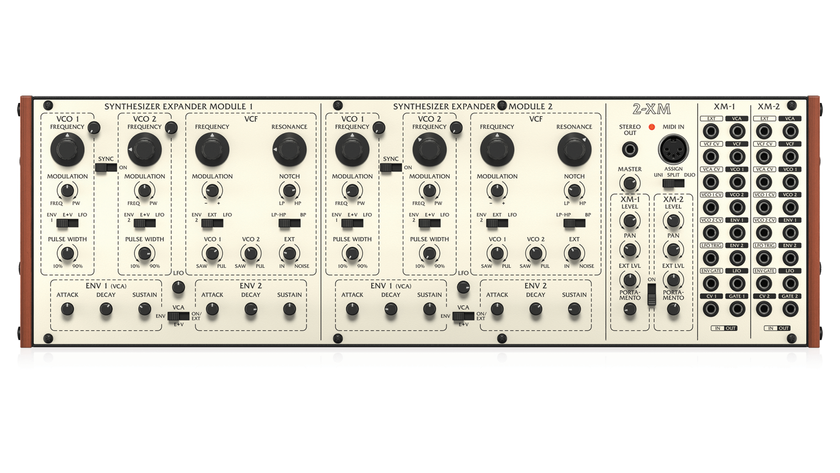Incipit delay toolbox lets you process, shape, modulate and mutate
New plugin from Inear Display

Aimed at sound designers and those who want a quick tool for concocting sonic mutations, Incipit is a new 'creative delay toolbox' from Inear Display.
This offers three effect chains, each of which includes a pitch shifter and a delay line. Further processing can be applied using the multimode filter and four LFOs, while fast edits can be applied using the three macro modulators.
Your routing options can be configured in a modulation matrix, and you can add variation to your patches with the randomising control. More than 70 presets are included to get you started.
You can find out more, listen to audio demos and download a demo on the Inear Display website. Incipit is available for PC and Mac in VST/AU formats and costs €39 plus VAT.
Inear Display Incipit features
- 3 Effect Chains including Pitch Shifter, Delay with optional tempo sync and output gain and panoramic controls
- Mix amount for all the Pitch Shifters and Delays
- Warm Sounding Multi-mode Filter (Lowpass, Highpass, Bandpass, Notch)
- Dry/Wet Control
- 4 LFO Modulators with optional tempo sync and optional high rate mode (up to 1000 Hz)
- 3 Macro Modulators
- All Modulations are processed at audio rate
- Intuitive Modulation Matrix with positive and negative modulation amounts
- Global Modulation Depth scaling parameter
- Randomizer with sub-groups and random amount control
- Over 70 factory presets
- Oscilloscope
- Clean Color Coded Interface
- Scalable User Interface (up to 200%)
- Cross-Platform presets
- MIDI Learn
- MIDI program change support
Get the MusicRadar Newsletter
Want all the hottest music and gear news, reviews, deals, features and more, direct to your inbox? Sign up here.



I’m the Deputy Editor of MusicRadar, having worked on the site since its launch in 2007. I previously spent eight years working on our sister magazine, Computer Music. I’ve been playing the piano, gigging in bands and failing to finish tracks at home for more than 30 years, 24 of which I’ve also spent writing about music and the ever-changing technology used to make it.











![Chris Hayes [left] wears a purple checked shirt and plays his 1957 Stratocaster in the studio; Michael J. Fox tears it up onstage as Marty McFly in the 1985 blockbuster Back To The Future.](https://cdn.mos.cms.futurecdn.net/nWZUSbFAwA6EqQdruLmXXh-840-80.jpg)